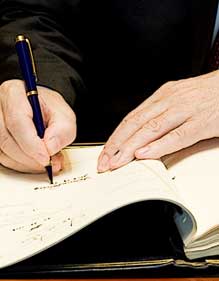|
Getting your Trinity Audio player ready...
|
 Dear Corruption Watch,
Dear Corruption Watch,
I see there are a number of international covenants and protocols to do with fighting corruption ranging from the UN, the AU, the OECD and SADC (I’m sure there are others, too). Can you please tell me which, if any, South Africa has signed and whether they’re binding in any way, i.e. will we as a society face consequences if our corruption keeps getting worse?
Globally Connected
Dear Connected,
South Africa is party to six international agreements and conventions aimed at combating corruption. These are:
· The Southern African Development Community Protocol against Corruption;
· The Southern African Development Community Protocol on Combating Illicit Drugs;
· The African Union Convention on Preventing and Combating Corruption;
· The United Nations Convention against Corruption;
· The United Nations Convention against Transnational Organised Crime; and,
· The Organisation for Economic Co-operation and Development Convention on Combating Bribery of Foreign Public Officials in International Business Transactions.
That’s a long list but it’s only an impressive one if it makes a difference to South Africa.
These treaties impose obligations on South Africa to investigate, prosecute, and prevent corruption at both a national and international level. They also require South Africa to cooperate with other states to do so. This is an important consideration given how much corruption is between the state and foreign companies that are difficult to prosecute domestically. However, these obligations mean nothing if they don’t actually bind South Africa.
A treaty only binds South Africa once it has been approved by the National Assembly and the National Council of Provinces. When this happens it doesn’t mean that we have the right as citizens to go to court to enforce the treaty. Normally the treaty must be enforced by other states in international forums like the United Nations and other bodies. Even then, forcing another state to comply with its treaty obligations is difficult. Often the most powerful impact of a treaty is that it lets states say to each other ‘you signed the UN Convention against Corruption so why aren’t you fighting corruption in your country?’
Some of the anti-corruption treaties go further and require that states take steps at home to change their laws and policies in order to combat corruption more effectively. This is not empty rhetoric. The SADC Protocol against Corruption and the UN Convention against Corruption both acted as catalysts for South Africa’s Prevention and Combating of Corrupt Activities Act. Passing this legislation satisfied some of South Africa’s obligations under those treaties but also created a mechanism for South Africa to deal with corruption at home. Similarly, the government has passed regulations that require companies to monitor their compliance with the OECD’s recommendations designed to prevent companies and their employees from participating in corruption.
The anti-corruption treaties also have an indirect influence on South Africa. In the second Glenister judgment, the Constitutional Court determined that there was a constitutional obligation to create an independent anti-corruption unit. This obligation was a general one since the Constitution did not provide specific guidelines as to what independence would entail. So, the Court used the anti-corruption treaties to flesh out the more specific requirements of independence. It was this robust standard of independence that allowed the Court to find that the Hawks lacked sufficient independence.
What this all means is that there should be consequences if corruption in South Africa gets worse. First, we should expect international criticism and censure from other states. Second, if South Africa is acting in good faith to fulfil its obligations under these treaties then it should revise its existing laws, policies and the implementation thereof to ensure that they’re in effective at preventing corruption. Finally, these treaties provide a basis upon which civil society can lobby the state for change and, if necessary, litigate to compel the state to improve its corruption fighting institutions.



